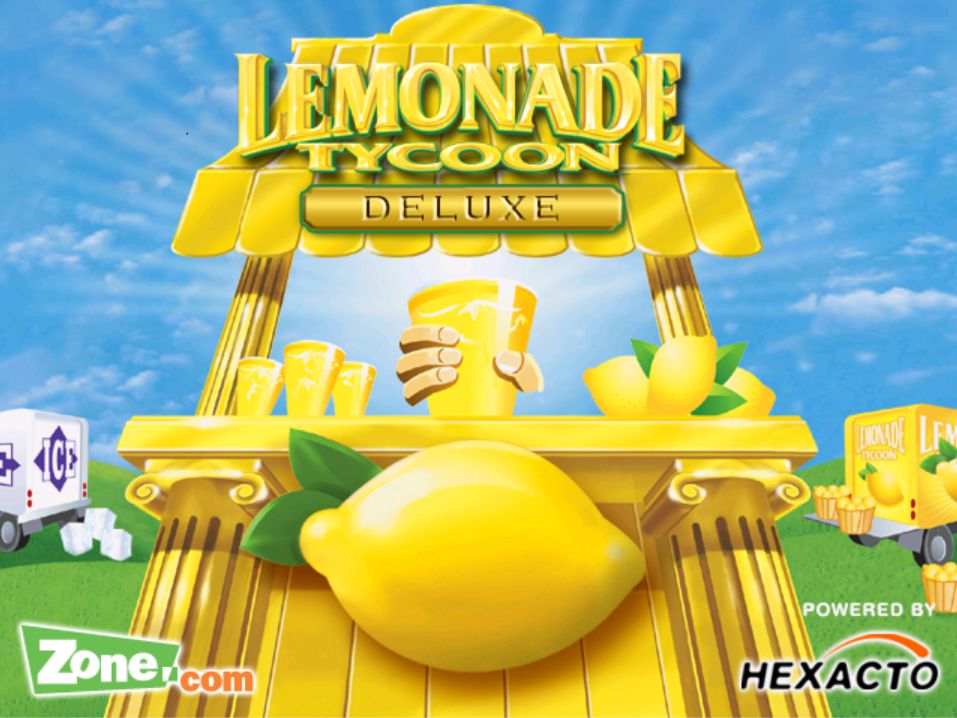
- LEMONADE TYCOON ONLINE MATH GAMES HOW TO
- LEMONADE TYCOON ONLINE MATH GAMES FULL
- LEMONADE TYCOON ONLINE MATH GAMES SOFTWARE
- LEMONADE TYCOON ONLINE MATH GAMES SERIES
LEMONADE TYCOON ONLINE MATH GAMES SERIES
While the series would be short-lived, the problem-solving gameplay geared towards kids would inspire many later games.
LEMONADE TYCOON ONLINE MATH GAMES HOW TO
The games are fun, interesting, and boost problem solving and creative thinking skills while teaching kids how to take notes, organize information, and expand their knowledge about police work. Players comb the streets looking for clues, question witnesses, investigate homes while occupants are away, and use the SnoopNet computers to solve crimes.
LEMONADE TYCOON ONLINE MATH GAMES SOFTWARE

While Logo’s use peaked during the mid-1980s, it was nonetheless pivotal in the development of educational programs, teaching a generation of kids that programming wasn’t only accessible, it could also be fun. Through inputting commands, essentially very basic programming codes, students could use the turtle to draw geometric shapes, from circles to stars to spirals. Students will primarily remember Logo through its use of a turtle-shaped icon, which could be moved and altered.
LEMONADE TYCOON ONLINE MATH GAMES FULL
Logo Programming (1967): Logo is perhaps a strange inclusion on a list full of games, as it is actually a programming language, but its early application in education and use as a fun way to teach programming and mathematical concepts earn it a solid place on any list of foundational computer programs in education.Some are still played today, others helped to inspire later educational games, but all still bring up fond memories in the students who used them to learn and play. Here we highlight a few of those amazing early educational games. They show kids that education can be fun and instill a love of learning that will carry on throughout their lives. Things have changed a lot since then, but one thing has remained the same: the best educational games aren’t just tools for teaching. While the graphics may not have been great, the games helped to engage a generation of kids with technology and laid a solid foundation for the educational games that were to come. Educational games have been a commonplace part of the K-12 experience since the beginning of the 1980s (and in some places well before that), with early titles introducing students to fundamental math, history, and problem solving concepts just as games do today.


While there has been a surge in the acceptance and prevalence of game-based learning in schools over the past decade, especially in light of the success of programs like Khan Academy, playing games in the classroom is nothing new.


 0 kommentar(er)
0 kommentar(er)
